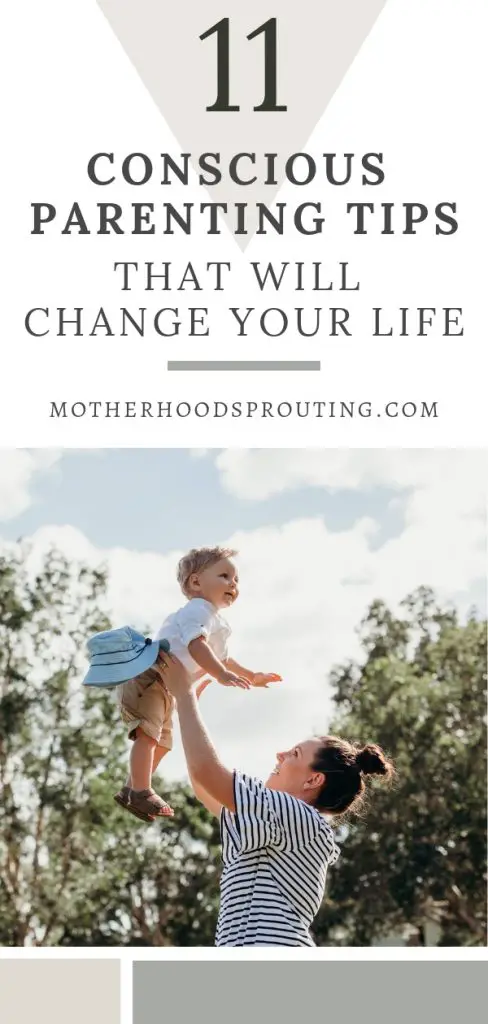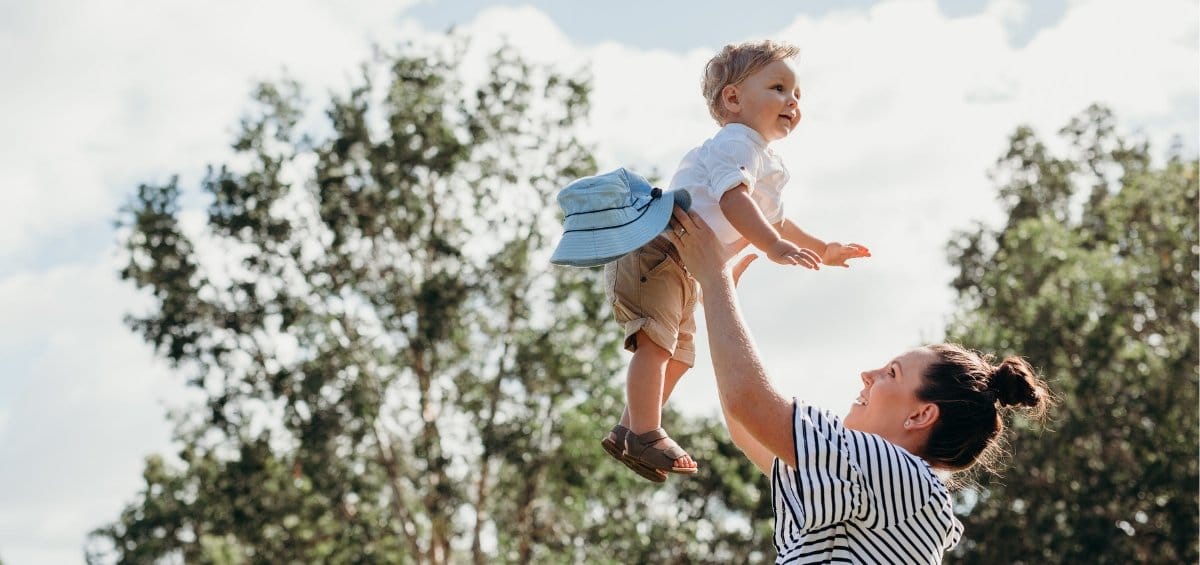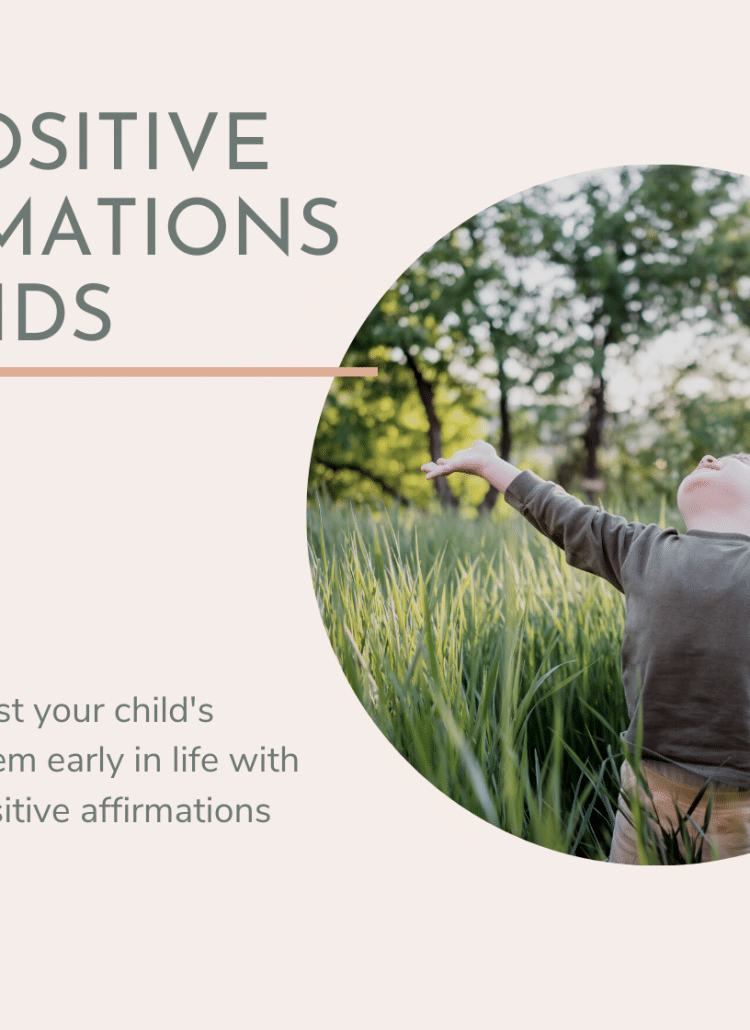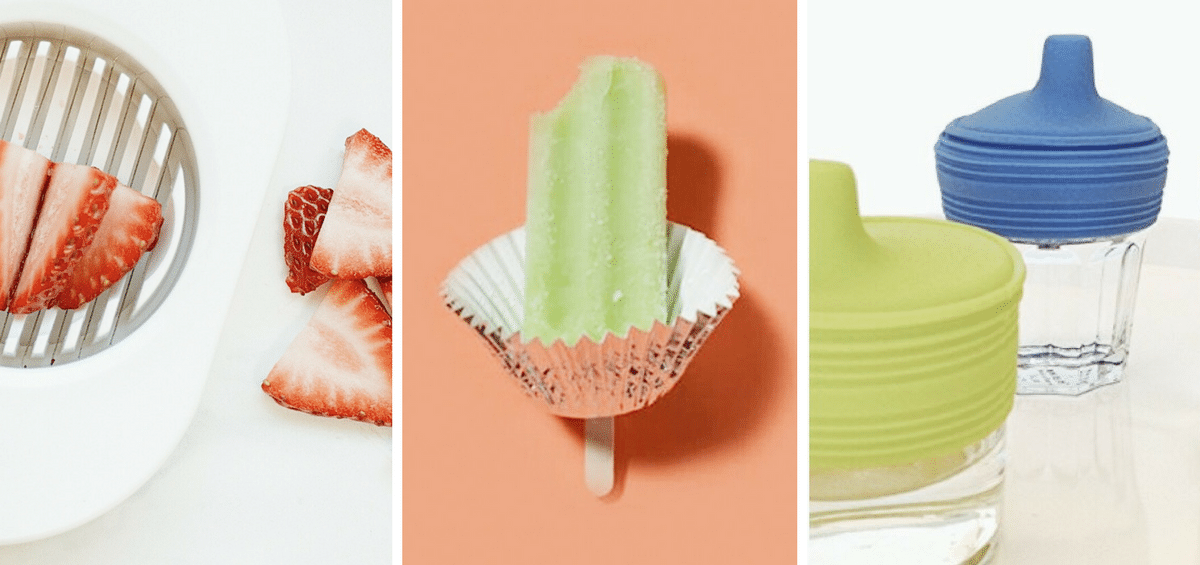In this post, you’ll learn 11 conscious parenting tips that will help you create a more harmonious, peaceful relationship with your children that will change your life for the better!
Telling someone you have information that will change their life is a big promise to make.
I debated making that promise in the title of this post just in case I couldn’t follow through. However, as you can tell, I decided to go for it.
The quality of the relationship you have with your children does have the power to dictate the quality of your life.
If you have a tumultuous, disconnected relationship with your children that’s in a constant state of struggle and conflict, you won’t be living your best life.
On the other hand, if you have a harmonious, peaceful relationship with your children it will be your light and safe haven even when other aspects of your life aren’t the best.
The reason I ultimately decided to make you this promise, is because I believe the tips below have the power to help you create a beautiful relationship with your children.
Having that kind of relationship, especially if it’s not your current reality, does have the power to change your life!
What is conscious parenting?
Put most simply, conscious parenting is about improving yourself for the benefit of your children. It is truly the essence of Motherhood Sprouting.
It centers around the belief that in order to be a better parent, you have to be willing to deconstruct your current belief system and go on a journey of self-improvement.
According to Dr. Shefali, author of The Conscious Parent, conscious parents have done the work to confront their fears, they have surrendered their expectations of their fantasies being met via their children, they realize their child is not here to meet their needs, and that their pain cannot be solved by their children.
A conscious parent begins to realize how conditioned they are by their own childhood and culture and they do not wish to impose this on their children, at least as much as possible!
One of the principles of conscious parenting is allowing your children to be their authentic selves by letting go of your preconstructed ideas of what it means to be good or bad.
Allow your children to discover the world for themselves and make their own conclusions.
Conscious parenting is about becoming more mindful of the picture of the world you are painting for your children. It’s about stepping back and letting them paint their own picture, even if it’s not the kind of picture YOU would have painted or what makes the most sense to YOU.
Being a conscious parent is NOT about being a perfect parent at all. It’s not easy and does not guarantee you will never make mistakes or fail.
It’s about becoming aware of yourself and how your words, ideas, and actions are molding your children. It’s doing your best to not transfer too many of your issues, expectations, and personal pain onto them. You’re inevitably going to transfer some of your crap; conscious parenting is being aware of when that is happening, checking yourself, and realigning.
Why should you practice conscious parenting?
If you’ve ever caught yourself saying something and were immediately mortified because you “sounded just like your mom” and you didn’t mean it in a good way — that’s why you should practice conscious parenting.
Conscious parenting is all about not letting your own issues, negative conditioning, and fears become your children’s.
Personally, as someone who has battled anxiety, OCD, and depression my whole life, I come with a lot of baggage. There is potentially a lot of pain that I can unknowingly unload on my daughter. I DO NOT want that to happen!
Luckily, I have started down a path of rediscovering
By practicing conscious parenting, which I think can also be called mindful parenting too, you will find that you aren’t as reactive or defensive as you may have been in the past. You start to see things a little more objectively, which creates more space for appropriate responses, instead of ego-fueled reactions.
It does take practice to become more self-aware, but after a while, you will find yourself stopping mid-sentence or action and thinking, “Wait, I don’t want to say that, or I really don’t want to do that. Realign!”
While it might seem like you have to practice a lot of self-control, I find that it feels more like I’m finally free from my habitual, instinctive, often negative reactions.
Learn 11 concious parenting tips below
1. Speak to your children in a respectful way
One thing you can do to become a more conscious parent is to really become aware of how you speak to your children.
How you speak to your children is powerful — your words, tone, and volume will dictate whether or not your child feels safe and respected or threatened and degraded.
How often are you yelling? Are you speaking in a sarcastic or impatient tone? Do you constantly say words like No, Don’t, Stop, etc?
Talk to your children the way you would like people to talk to you. For example, don’t laugh at them when they say something funny, even if it’s really cute, because they might think you’re making fun of them.
Start to really notice how you speak to your children and maybe make some changes. Talk in a more comforting and patient tone of voice, use more encouraging and empowering words, and make sure you are respecting them with the way you communicate.
2. Manage your expectations
Conscious parenting is all about not projecting your own wants and needs onto your children. In order to do that, you must become better at managing your expectations.
Your children are not always going to do what you want, how you
We have to let go of our need to mold our children into who we want them to be and let them authentically evolve on their own.
When we have expectations for how we want our children to act, or who we want them to be, we are essentially saying that what we want for them is right and good and anything else is wrong and bad.
When they don’t meet our expectations, we feel like we failed and they feel like they’ve disappointed us!
And they’re not wrong! But that’s not their fault — it’s ours. We have to be more mindful of when we are expecting our children to be a certain way and give them the space they need to be who they are without feeling any disappointment from us.
3. Work on your own issues
Being a conscious parent requires doing A LOT of work on yourself.
You really have to take a deep dive into your conditioning, negative patterns, trauma, and triggers so that you can understand yourself enough to have self-awareness.
In order to become more mindful, you must uncover old wounds and take the time to heal them. There are so many ways you can do this, I’ll go over a few of them below.
First, read self-improvement books.
Start reading lots of self-improvement books! It’s more affordable than therapy but still opens your eyes to new ideas, perspectives, and ways of discovering the parts of yourself that still need some work or healing. Dr. Nicole LePera’s How to Do the Work is really good for uncovering childhood trauma and finally healing it.
Second, start a meditation practice.
Sometimes all you need to figure yourself out is a little stillness and silence. If you’ve never meditated before and you want more information, check out this post on how to start meditating.
Third, start using affirmations.
I like to think of affirmations as gentle reminders of the truth. Personally, one of the things I am working on is my need to control everything, which of course includes my daughter. So, I came up with this affirmation that I tell myself when I notice that I’m falling into a controlling pattern:
I am not here to control my child. Only gently and
loving ly guide her.
Come up with your own affirmations to help keep you on track or check out these 73 positive affirmations for moms!
4. Consider creating a daily routine
I think it’s pretty common knowledge that children thrive off of routine. Read any parenting book and you’ll see that creating a predictable daily routine is always one of the recommendations.
I think as long as you’re not being too rigid or controlling while enforcing the routine, then it can be a great way to practice conscious parenting.
In order to be a conscious parent, you need to make room for mindfulness in your daily routine.
It’s hard to be mindful and aware of yourself when your days feel chaotic, full of stress and unpredictability. If your day is a bit more structured and predictable for both you and your children, it makes the day flow more effortlessly; which makes it easier to stay conscious of your words and actions.
5. Keep your children’s ages in mind
There can be a lot of dissonances and struggle when we forget what kind of behavior is age-appropriate for our children.
We need to keep our children’s ages in mind before reacting to situations too quickly. We might just be reacting to something that is completely normal for the age of our child and doesn’t need to be blown out of proportion.
For example, when you find your toddler dumping out your expensive face oil (personal example, lol) — your first reaction is going to be negative. You’re going to want to yell, get angry, etc.
A conscious parent would take a more mindful approach and remember that their child is only two years old. Realize that they are just trying to explore their environment, their actions are completely age-appropriate, and they do not deserve to be reprimanded for it.
The conscious parent would sit down with their child and gently explain why they shouldn’t dump out mommy’s face oil and take a moment to teach the value of belongings, money, etc.
Keeping your children’s ages in mind can quickly put things into perspective and save you from unnecessary conflict.
6. Treat your children as individuals
There is no one size fits all way of parenting.
Conscious parenting means that you are completely aware of each child’s individual needs and treat them accordingly.
Try to be more aware of comparing your children to their siblings, friends, family members, etc. Give your child room to grow into themselves without feeling like they are being measured against someone else.
7. Show empathy and compassion
A big part of conscious parenting is being aware of your responses and reactions enough to make sure you are showing your children empathy and compassion when they need it.
Our children are not perfect and we should not expect them to be. They are going to make mistakes and look to us for comfort and reassurance.
We need to take the time to see things from our children’s perspectives and imagine how they might be feeling in any given situation.
For instance, let’s say your toddler spills their juice. Your action might be to reprimand, act frustrated, or even angry. But imagine it was you who just spilled your drink.
Of course, you didn’t do it on purpose. How would you feel if someone reprimanded you and made you feel bad about it? Wouldn’t you feel a sense of shame and embarrassment?
Try to be more cognizant when you might be reacting to your child’s actions unfairly.
8. Teach your children by example
One of the most effective ways to teach our children is by example. Actually, in my opinion, it’s the best way.
Our children, especially when they are younger, are going to be little copycats; wanting to do what we do and say what we say. Why not use that in a positive way?
If you want to teach your children compassion, show them what it looks like to be compassionate by showing them compassion when they need it.
Or if you want to teach your child patience, be patient with them even when it’s hard.
Maybe you want your children to be more clean and tidy, let them watch as you keep your space tidy with a smile on your face!
I think you get the point. Lead by example.
9. Model heathy habits
This one goes along with teaching your children by example. If you want your children to have healthy habits, model healthy habits for them.
Teach them to respect their bodies and themselves by respecting your own. Remember, being a conscious parent is more about us than about our children.
It’s important to note that modeling does not mean forcing, controlling, or manipulating. It means letting your children make observations of you on their own and letting them act accordingly.
You can’t expect your children to love being physically active if all they see you do is sit on the couch all day. If you want your children to happily eat their veggies, show them how much you love eating your veggies, instead of slyly eating cookies after you told them they couldn’t have any more sweets that day.
This goes for how you talk to yourself as well.
If we want our children to love themselves and have a positive self-image, we can’t let them see us putting ourselves down or hear us using negative self-talk.
For example, if your daughter sees you looking in the mirror and complaining about how much you hate your body, they will learn to hate their body too.
On the contrary, if they see you looking in the mirror and expressing how much you love your body, there is a much greater chance that they will do the same.
Model healthy eating, body positivity, etc, and your children will be much more likely to follow suit.
10. Give your children responsibilities
Children want to know that they are capable, important, and needed.
One way to make sure they feel that way is to give your children responsibilities. Giving your children responsibilities also fosters independence and helps them feel more self-reliant.
For younger children, giving more responsibility can be as simple as asking them to throw their trash away or put their dirty clothes in the laundry basket.
For older children, give them chores to do around the house. If you get a little push back, which with older kids you probably
11. Slow down
In order to be a more conscious parent, you need to slow down in every way possible.
Stop rushing through the day and practice being more patient with your children. Children are still learning and developing and they need more time to process information.
Give your children a chance to answer your questions without interrupting them and pushing for an answer. Give them time to make their own choices without prompting them to make a choice already.
Let them move at their own pace instead of always telling them to go, go, go.
Children are truly experts at stopping to smell the roses. It’s one of the most beautiful things about them. They are effortlessly mindful and innately know how to live in the moment.
Instead of trying to speed them up and get them on your level, maybe slow down and get on their level. See the world through their eyes and learn to stop and smell the roses again.
Let conscious parenting change your life
Now that you have more insight into what conscious parenting is, try out a few of the tips above and see if you notice a difference in your relationship with your children.
Give yourself grace and time to adjust. Don’t forget that conscious parenting is not about becoming a perfect parent.
It’s about applying as much consciousness as possible, noticing when you mess up, and realigning. I genuinely believe the conscious parenting tips above have the power to change your life.







Great blog, thank you for writing this. We practice as much of this as possible, sometimes there seems a gap between a child learning what they ‘shouldn’t do’ (YES…by OUR values, not theirs) & how to ‘discipline’ them to not do it.
FOr example: throwing food on the floor. After months of saying “we shouldn’t throw on the floor & if ywe don’t want it, we can simply put it on the table” – our adorable & amazing 2.5 year old daughter, still throws on the floor (& she really knows she shouldn’t)
It’s a simple example & not the worst thing in the world, but there’s multiple things similar to this so understanding how to handle 1-2 will help with many in a similar way.
Thank you
Nice write up..it was very helpful for me
Amazing thank you for this blogpost, great and helpful insights and information <3